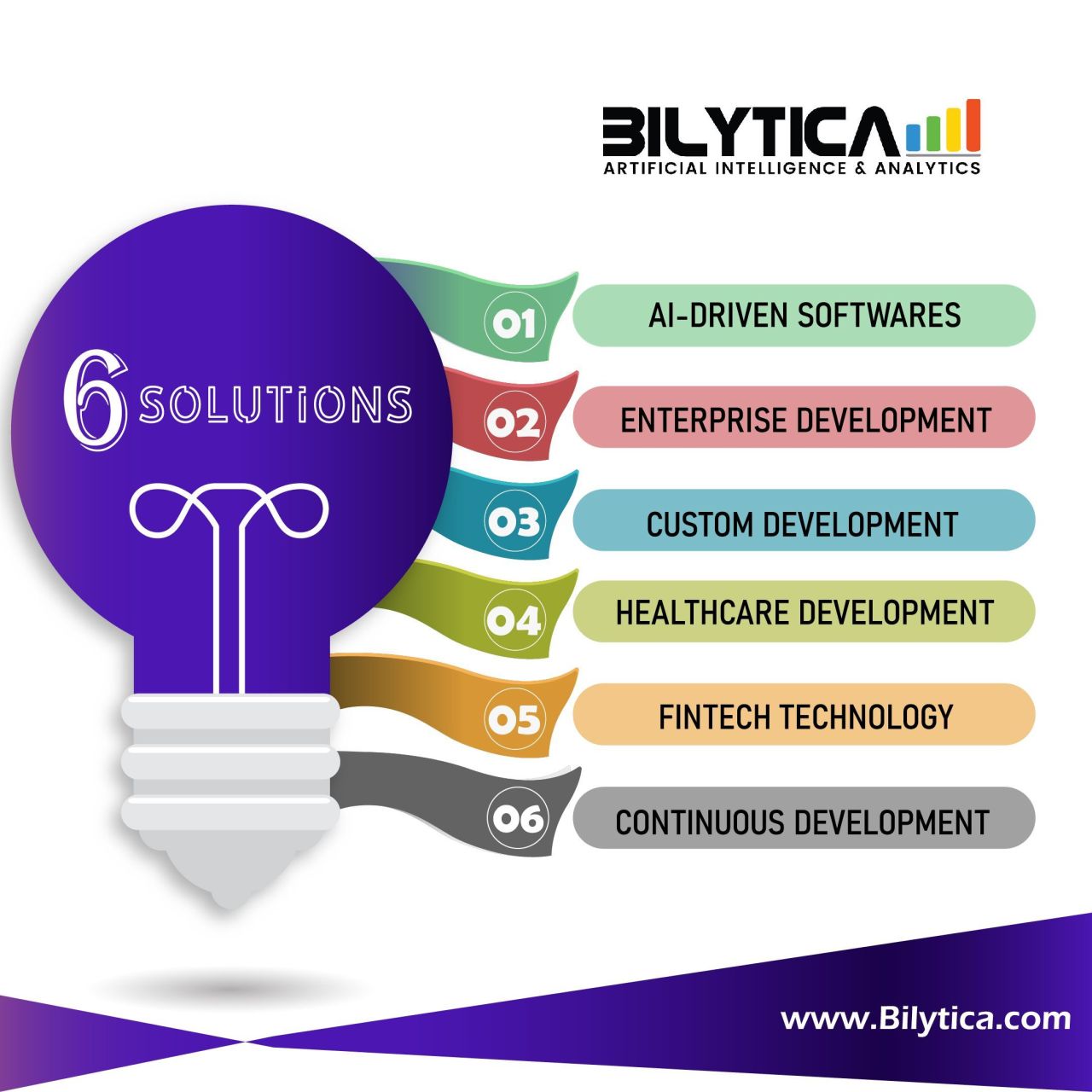Bilytica # 1 is one of the top Business Intelligence Analyst in Saudi Arabia is becoming an essential tool for businesses worldwide, and Saudi Arabia is no exception. As the Kingdom progresses towards its Vision 2030 goals of economic diversification and digital transformation, the adoption of data analytics is reshaping the business landscape. This essay explores how data analytics is transforming businesses in Saudi Arabia, focusing on its impact on decision-making, operational efficiency, customer experience, and overall business growth.
Click to Start Whatsapp Chat with Sales
Call #:+923333331225
Email: sales@bilytica.com
Bilytica #1 Business Intelligence Analyst in Saudi Arabia

Enhanced Decision-Making
Data analytics provides businesses with the ability to analyze vast amounts of data and extract actionable insights. Business Intelligence Analyst in Saudi Arabia, companies across various sectors are leveraging analytics to make more informed decisions. By analyzing market trends, consumer behavior, and operational data, businesses can identify opportunities, optimize strategies, and mitigate risks.
For instance, in the retail sector, data analytics helps companies understand consumer preferences, forecast demand, and optimize inventory management. By using predictive analytics, retailers can anticipate customer needs and tailor their offerings, leading to increased sales and customer satisfaction. Similarly, in the financial sector, banks and financial institutions use data analytics for risk assessment, fraud detection, and customer segmentation, enabling them to offer personalized services and products.
Improved Operational Efficiency
One of the significant advantages of data analytics is its ability to streamline business operations. In Saudi Arabia, industries such as manufacturing, logistics, and healthcare are using analytics to improve efficiency and reduce costs. By analyzing data from various sources, businesses can identify bottlenecks, optimize processes, and enhance productivity.
In manufacturing, data analytics is used to monitor equipment performance, predict maintenance needs, and minimize downtime. This approach, known as predictive maintenance, helps companies reduce operational costs and extend the lifespan of machinery. In logistics, data analytics enables companies to optimize routes, manage supply chains, and improve delivery times. These improvements lead to better resource utilization and higher customer satisfaction.
Enhanced Customer Experience
Understanding and meeting customer needs is crucial for business success. Data analytics allows companies to gain insights into customer preferences, behaviors, and feedback. Business Intelligence Analyst in Saudi Arabia businesses are increasingly using these insights to enhance the customer experience.
For example, in the telecommunications sector, companies use data analytics to analyze customer usage patterns, identify service gaps, and offer personalized plans. This approach not only improves customer satisfaction but also enhances customer retention. In the hospitality industry, hotels and restaurants use data analytics to personalize services, optimize pricing, and improve guest experiences. By analyzing feedback and preferences, businesses can tailor their offerings to meet customer expectations more effectively.

Facilitating Business Growth and Innovation
Data analytics is a catalyst for Power BI growth and innovation. In Saudi Arabia, companies are using analytics to explore new business opportunities, develop innovative products, and enter new markets. By analyzing market trends, competitive landscapes, and consumer insights, businesses can identify emerging opportunities and make strategic decisions.
In the technology sector, startups and established companies alike are leveraging data analytics to develop new products and services. For instance, fintech companies use data analytics to create innovative financial solutions, such as digital wallets, online payment systems, and investment platforms. These innovations are transforming the financial landscape in Saudi Arabia and providing consumers with more convenient and accessible services.
Supporting Digital Transformation
Data analytics is a key component of digital transformation, helping businesses leverage digital technologies to enhance operations and customer interactions. In Saudi Arabia, the government’s Vision 2030 initiative emphasizes digital transformation as a critical driver of economic growth. As a result, businesses across sectors are adopting data analytics to support their digital initiatives.
In the public sector, data analytics is being used to improve government services, enhance transparency, and optimize resource allocation. For example, smart city initiatives use data analytics to manage urban infrastructure, monitor traffic, and improve public safety. These efforts not only enhance the quality of life for citizens but also contribute to the country’s economic development.
Challenges and Considerations
While data analytics offers numerous benefits, there are also challenges and considerations that businesses in Saudi Arabia must address. One of the main challenges is data quality and accessibility. To derive accurate insights, businesses need access to high-quality, reliable data. This requires robust data management practices, including data cleansing, integration, and governance.
Another consideration is data security and privacy. With the increasing use of data analytics, businesses must ensure that sensitive information is protected from breaches and unauthorized access. This is particularly important in sectors such as finance, healthcare, and telecommunications, where data privacy is a critical concern. Compliance with regulations, such as the Saudi Arabian Personal Data Protection Law (PDPL), is also essential to maintain trust and avoid legal repercussions.
Moreover, businesses need to invest in the right technologies and skillsets. Implementing data analytics requires advanced tools and platforms, as well as skilled professionals who can analyze and interpret data. Training and development programs can help businesses build in-house capabilities and stay competitive in the rapidly evolving landscape.
The Role of Government and Industry Initiatives
The Saudi Arabian government plays a crucial role in promoting data analytics adoption. Initiatives such as the National Data Management and Privacy Office (NDMO) and the Saudi Data and Artificial Intelligence Authority (SDAIA) aim to create a conducive environment for data-driven decision-making. These initiatives provide guidelines and frameworks for data management, encourage data sharing, and promote the use of AI and analytics in various sectors.
Industry associations and collaborations also support the growth of data analytics in Saudi Arabia. By fostering partnerships between academia, industry, and government, these collaborations help address skill gaps, promote research and innovation, and facilitate knowledge exchange. This collective effort is essential for building a robust data analytics ecosystem in the country.
Future Outlook
The future of Business Intelligence Platform in Saudi Arabia looks promising, with continued advancements in technology and increasing adoption across sectors. As businesses become more data-driven, the demand for analytics solutions and professionals is expected to grow. Emerging technologies such as AI, machine learning, and big data will further enhance the capabilities of data analytics, enabling businesses to gain deeper insights and drive innovation.
Moreover, as Saudi Arabia continues to invest in digital infrastructure and initiatives, the role of data analytics in supporting economic growth and development will become even more significant. Businesses that embrace data analytics and leverage its potential will be well-positioned to succeed in the competitive and dynamic market landscape.
Conclusion
Data analytics is transforming businesses in Saudi Arabia by enhancing decision-making, improving operational efficiency, and elevating customer experience. As the country progresses towards its Vision 2030 goals, the adoption of data analytics is expected to accelerate, driven by advancements in technology and supportive government initiatives. However, businesses must address challenges related to data quality, security, and skill development to fully realize the benefits of data analytics. By doing so, they can leverage data to drive growth, innovation, and competitiveness in the evolving business landscape.
Click to Start Whatsapp Chat with Sales
Call #:+923333331225
Email: sales@bilytica.com
Business Intelligence Analyst in Saudi Arabia
Business Intelligence Analyst in Saudi Arabia
Business Intelligence Analyst in Saudi Arabia
7-25-2024





